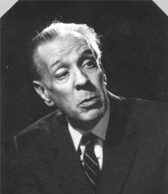Books, books, books. They increase lifespans, lower stress levels, and boost intelligence. Especially in uncertain times like these, they allow us to travel despite distances and other restrictions. Today, we celebrate World Book Day. The United Nations Educational, Scientific and Cultural Organization (UNESCO) called this day into existence during its General Conference, held in Paris in 1995 designated to encourage everyone to discover the pleasure of reading. Ever since, people all around the world have been paying tribute to books and authors annually on April 23, a date which marks the death of at least three great writers, namely Miguel de Cervantes, William Shakespeare, and Inca Garcilaso de la Vega.
Undoubtedly, books are a major vehicle of social and cultural progress and we, too, stand on the shoulders of giants. On the occasion of this year’s World Book Day, our Creative Director Aat Vos selected his top ten of influential reads. Here is the 2021 list of books that have impacted and advanced the thinking and working at includi:
1. The great good place
It seems that no day goes by at includi without someone referring to US American urban sociologist Ray Oldenburg and his thinking. First published in 1989, “The Great Good Place” makes a case for informal public life and introduces the idea of a Third Place – a place apart from work and home where people gather, share their stories, and connect. In doing so, this book sets the base for everything we do at includi: To create inclusive places where everybody feels welcome – or how Ray Oldenburg articulates it: to create “homes away from home”. In times like these when the public domain is ever-changing, we consider ourselves fortunate that – through the pages of this book – we are constantly reminded of the virtue of Third Places for the individual and society at large and thus owe him a lot.
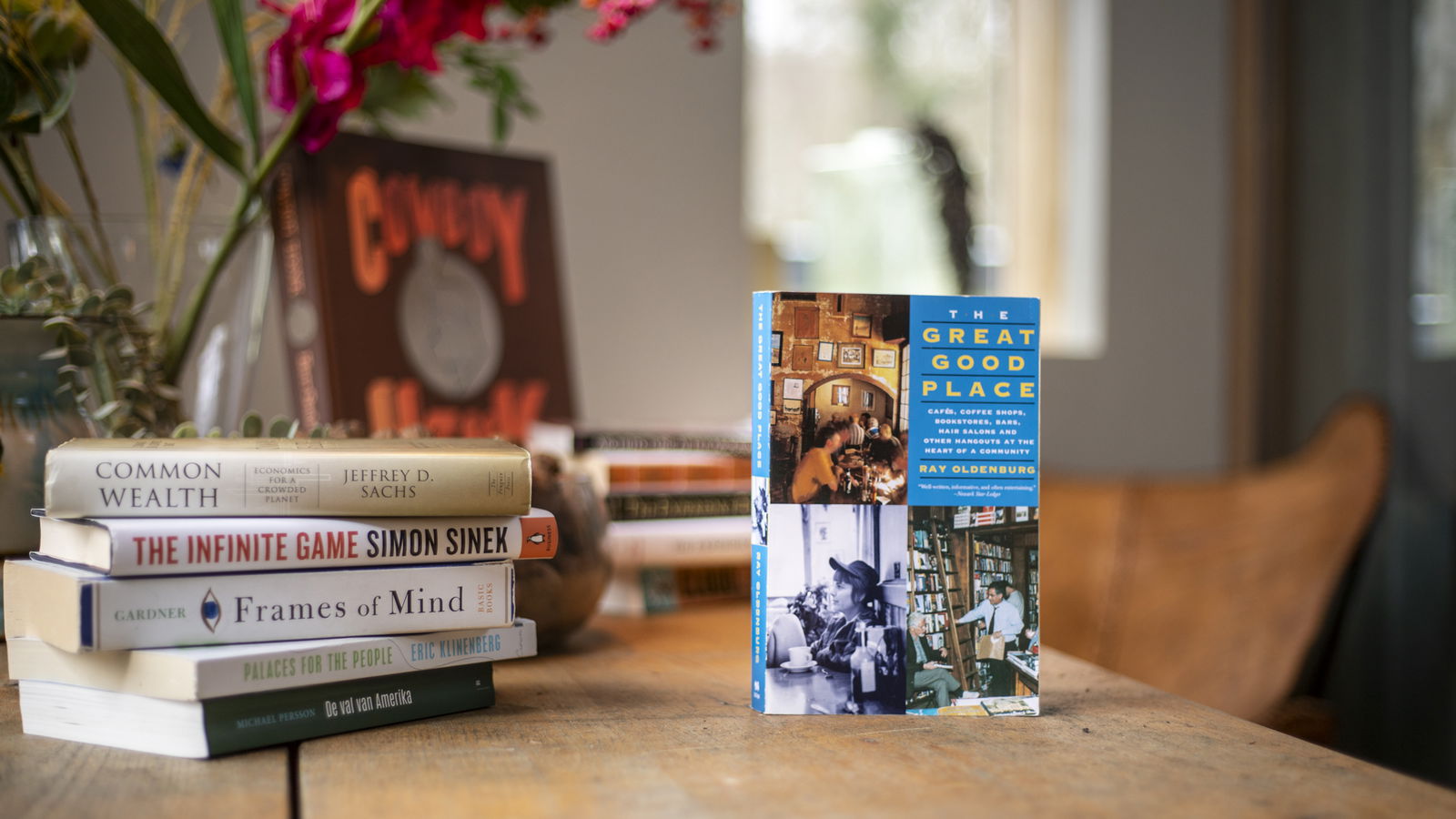
2. The Experience Economy
“Work is theater and every business a stage.” Teaching us about people’s desire for authentic experiences, the US American authors Joseph Pine II and James H. Gilmore have influenced our perception of time. By putting “time well spent” ahead of “time saved”, we strive to create spaces that cater for memorable experiences – spaces that, in addition, are ‘designed for programmability’ so that people can take ownership of them. This shift in understanding made not only us but the world realize the power of mental connection: What we consider of value does not necessarily constitute an external economic asset but is also something that lives within an individual.
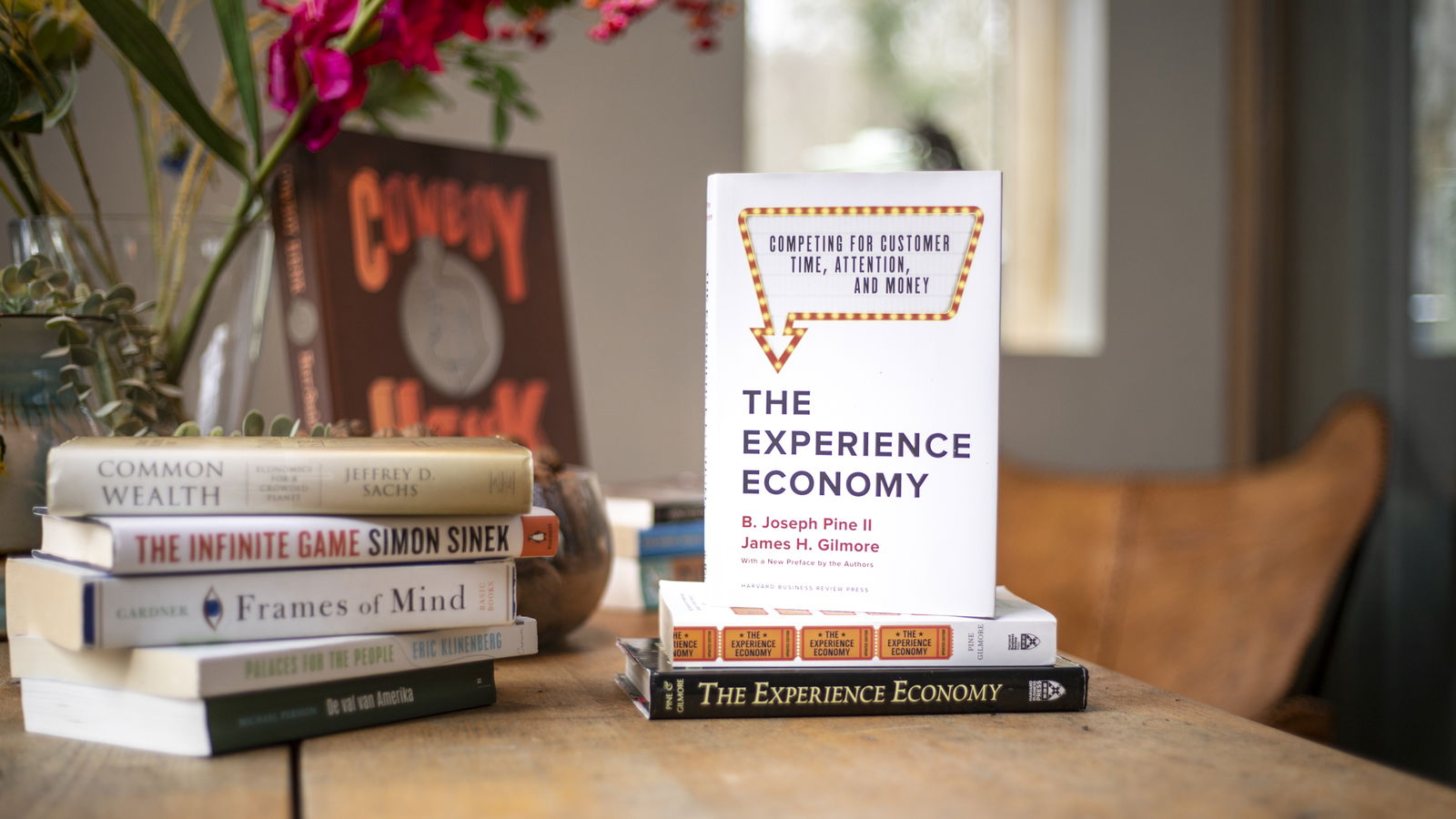
3. The Warehouse
Rob Hart’s dystopia “The Warehouse” is a powerful cautionary tale about how giant tech companies insinuate themselves into our society. Reminding us of Orwell’s “1984”, “The Warehouse” of US American author, novelist, and former journalist takes a hard look at where the world stands today and where it will be heading in the future. Speaking up for the importance of local community, we see a connection to another great inspiration of ours, namely Cormac Russel and his theory on the dynamics of community power. Making a case for being on the lookout and keeping balance, Hart calls us to cautiously observe what is happening around us and be critical. Although a simple division of the world into good and evil doesn’t do its complexity justice, this book reminded us that for us at includi, the role of innovation and technology of any kind is to serve humanity.
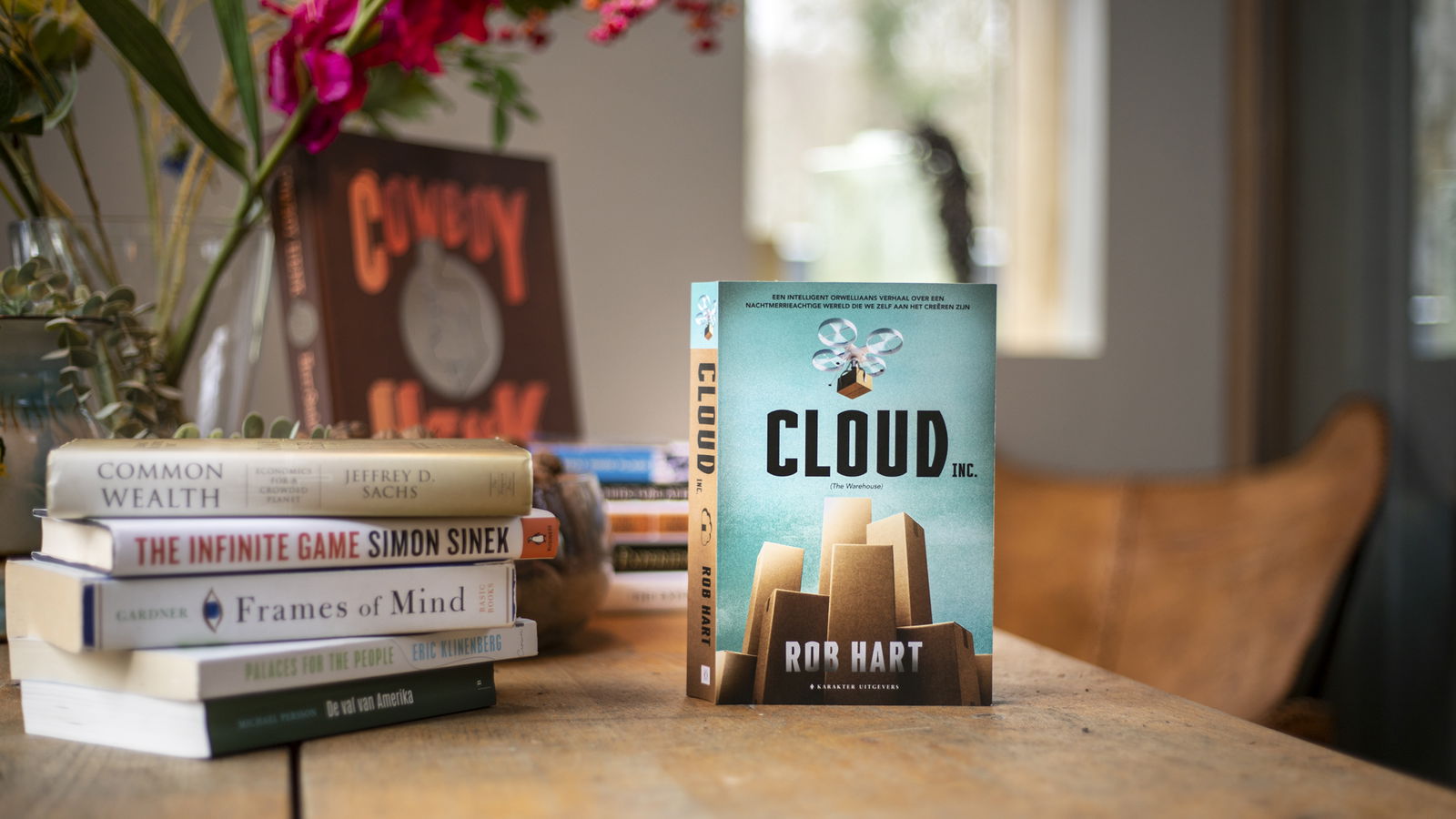
4. The Infinite Game
British-American author and inspirational speaker Simon Sinek has shaped our work with his groundbreaking TED talk “Start With Why” and his book “Golden Circle”: from WHY via the HOW to the WHAT. All our work starts with a quest to understand the reasons and motives of the places we design by putting people and their wishes and needs into the center. In his latest book “The Infinite Game”, Simon Sinek introduces ideas that make our ears perk up: Forever being players in games that have no finish lines, playing with a finite mindset in an infinite game will not bring us any further, rather the opposite.
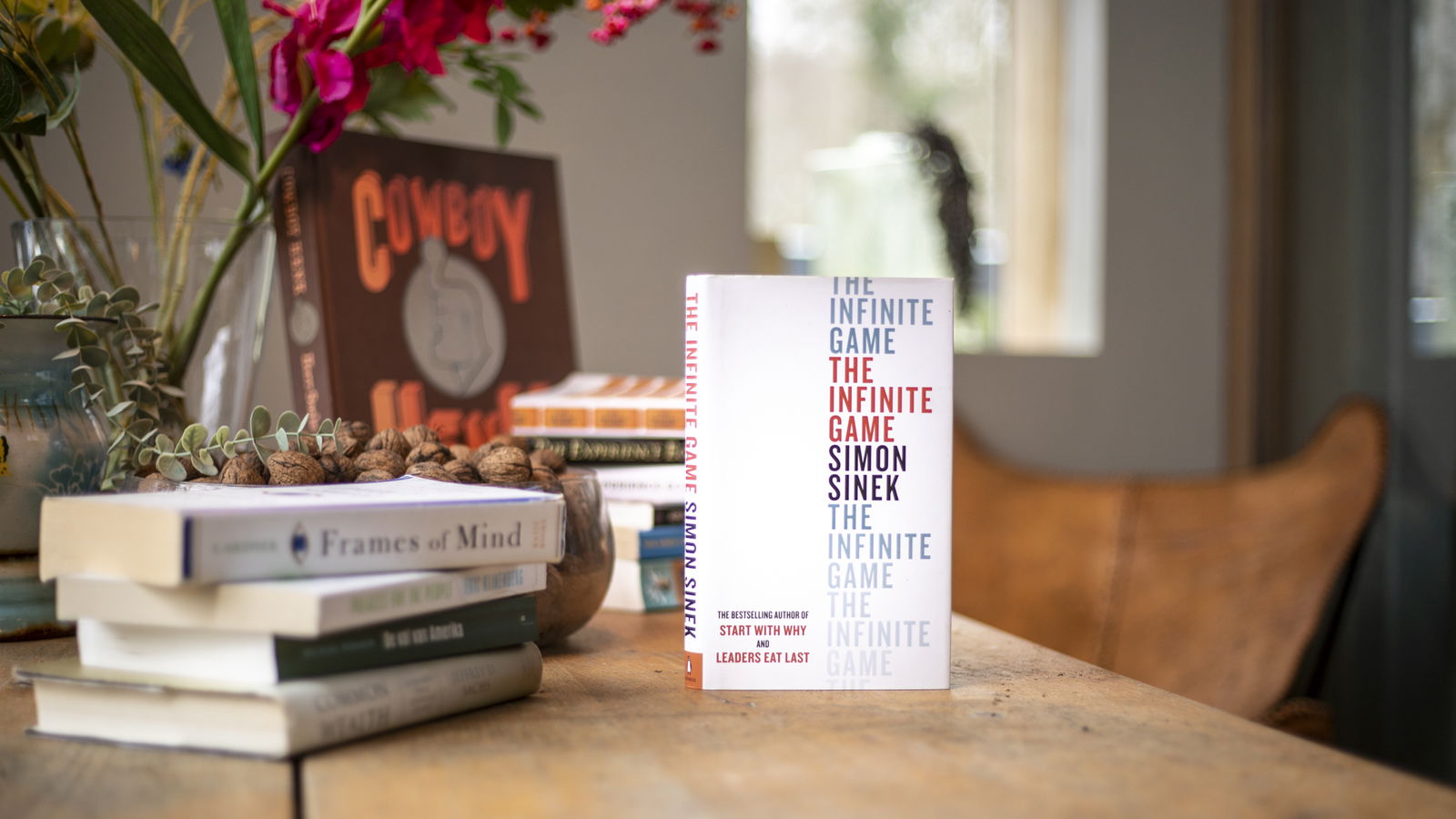
5. De Val Van Amerika
Respecting heritage and the history of a place is crucial to our work at includi: Whenever we are invited to redesign a public space, we dive deep into its local identity. Michael Persson, a Dutch journalist, discusses in his book “De val van Amerika” [English: The Fall of America] what happens when gentrification occurs and places get robbed of their very core. This development is well on its way, not only in fiction like in The Warehouse, but in reality. What this book describes in its threatening storyline are the genuine threats that modern societies face – most importantly, communities that fall ill.
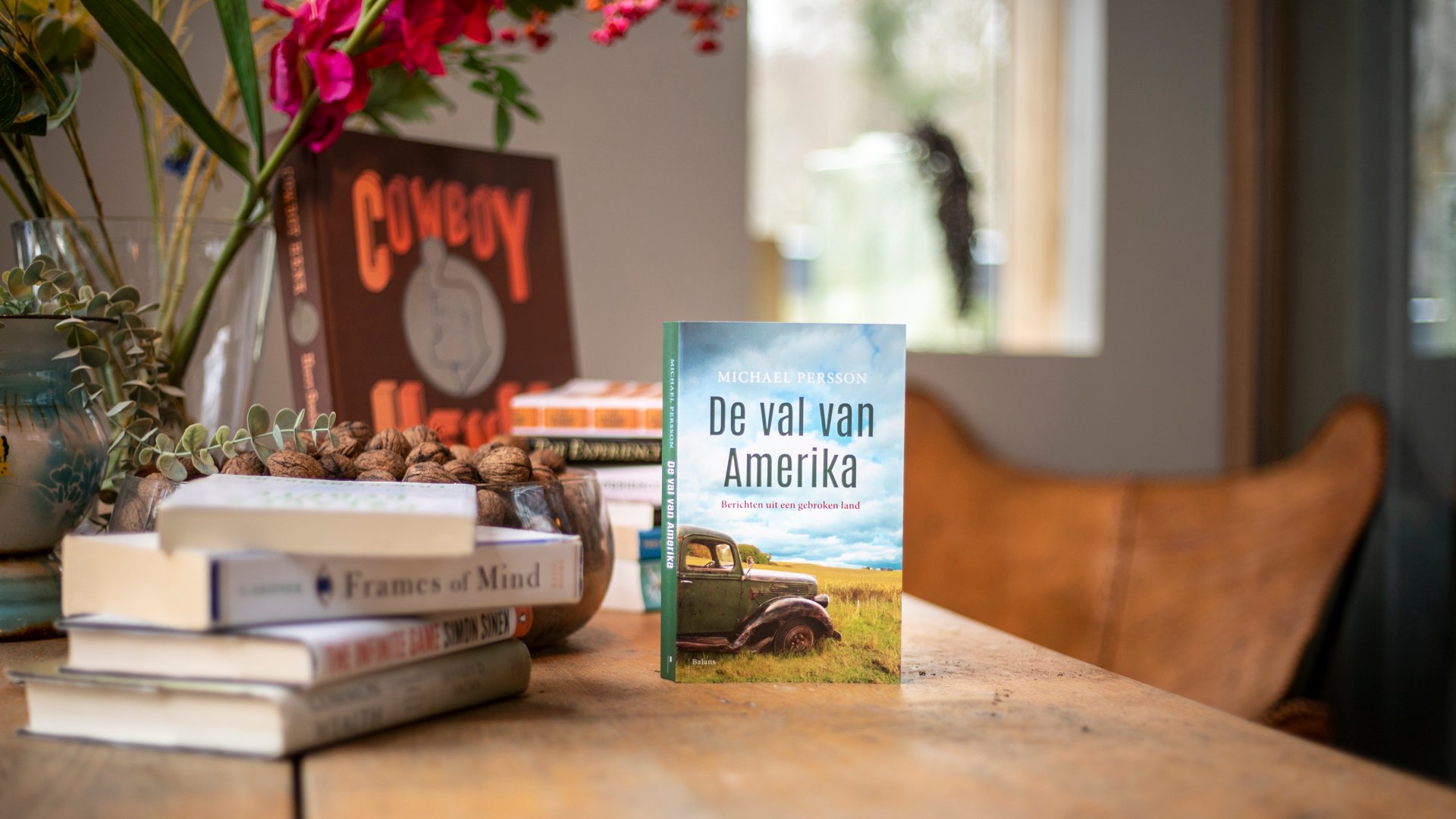
6. Palaces For The People
Third Places are not only crucial for the individual but for society as a whole – this is what the US American sociologist Eric Klinenberg refers to in his manifesto for public space development “Palaces for the people” published in 2018. In this sociological study, he brings forward the importance of the interplay between physical and the non-physical parts of urban infrastructure that fuels our social lives within; or what Klinenberg calls ‘social infrastructure’. A fully functional social infrastructure requires the existence of both physical and non-physical capital – yet according to Klinenberg in clear order: The presence of adequate physical capital (places) is the pre-condition for the healthy development of social capital (people). Rebranding the library as a crucial component in the social infrastructure, he argues that libraries might be one starting point to restore civil society and by doing so, create healthy societies.
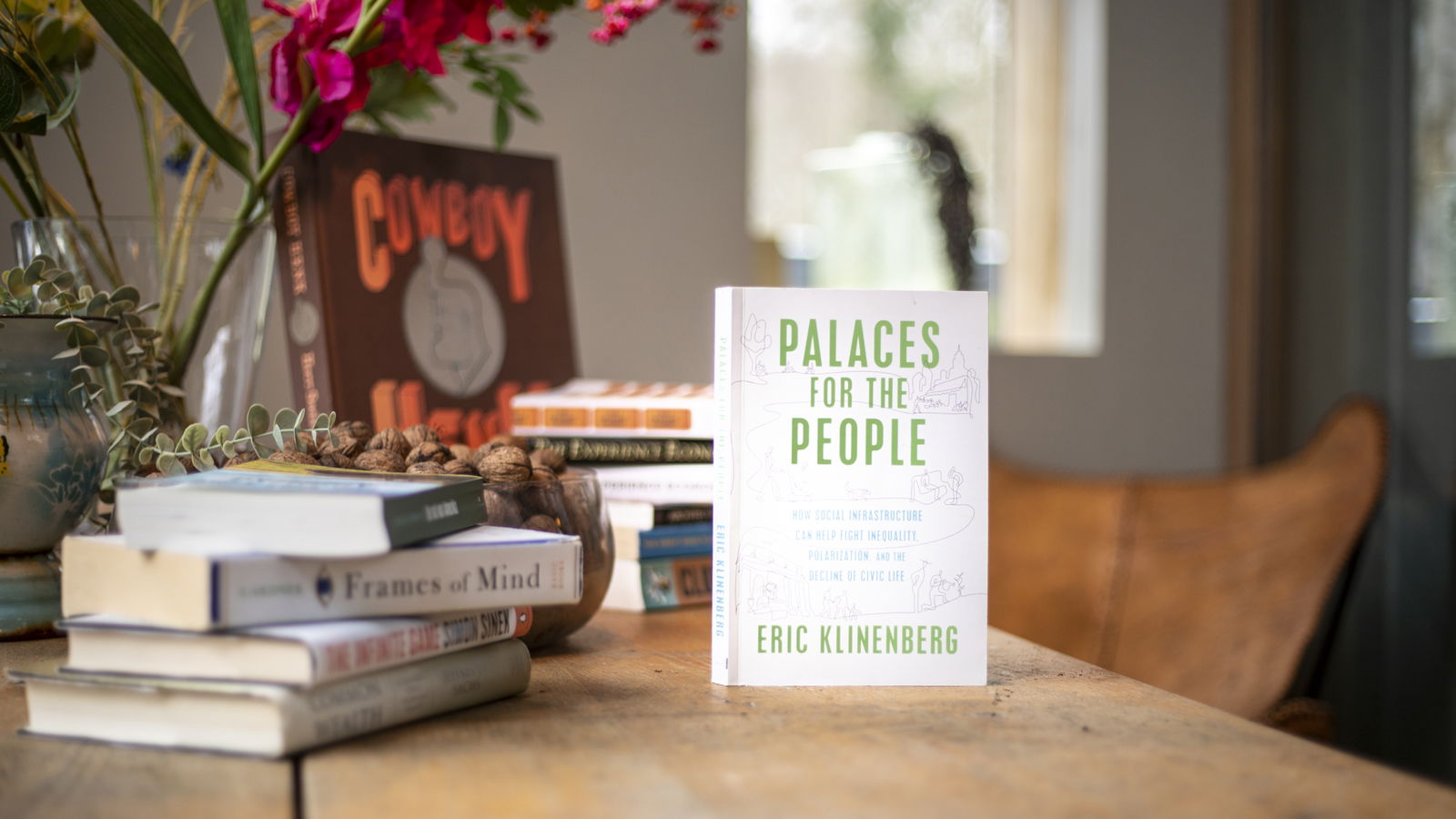
7. Architecture After Modernism
Published in 1996, Diane Ghirardo takes a spin through the architectural world of the late 20th century in her architectural classic “Architecture after Modernism”. Ghirardo, Professor of Architecture at the University of Southern California, talks to us about urban renewal and sustainability and expresses a warning to stop turning all our social into commercial infrastructure. Illustrating how delicately interconnected the physical, social, and political realms are in urban public spaces, this is a timely read to move through the meaning of public places and gain a deeper understanding of the different forces at play in the arena that is our workspace at includi.
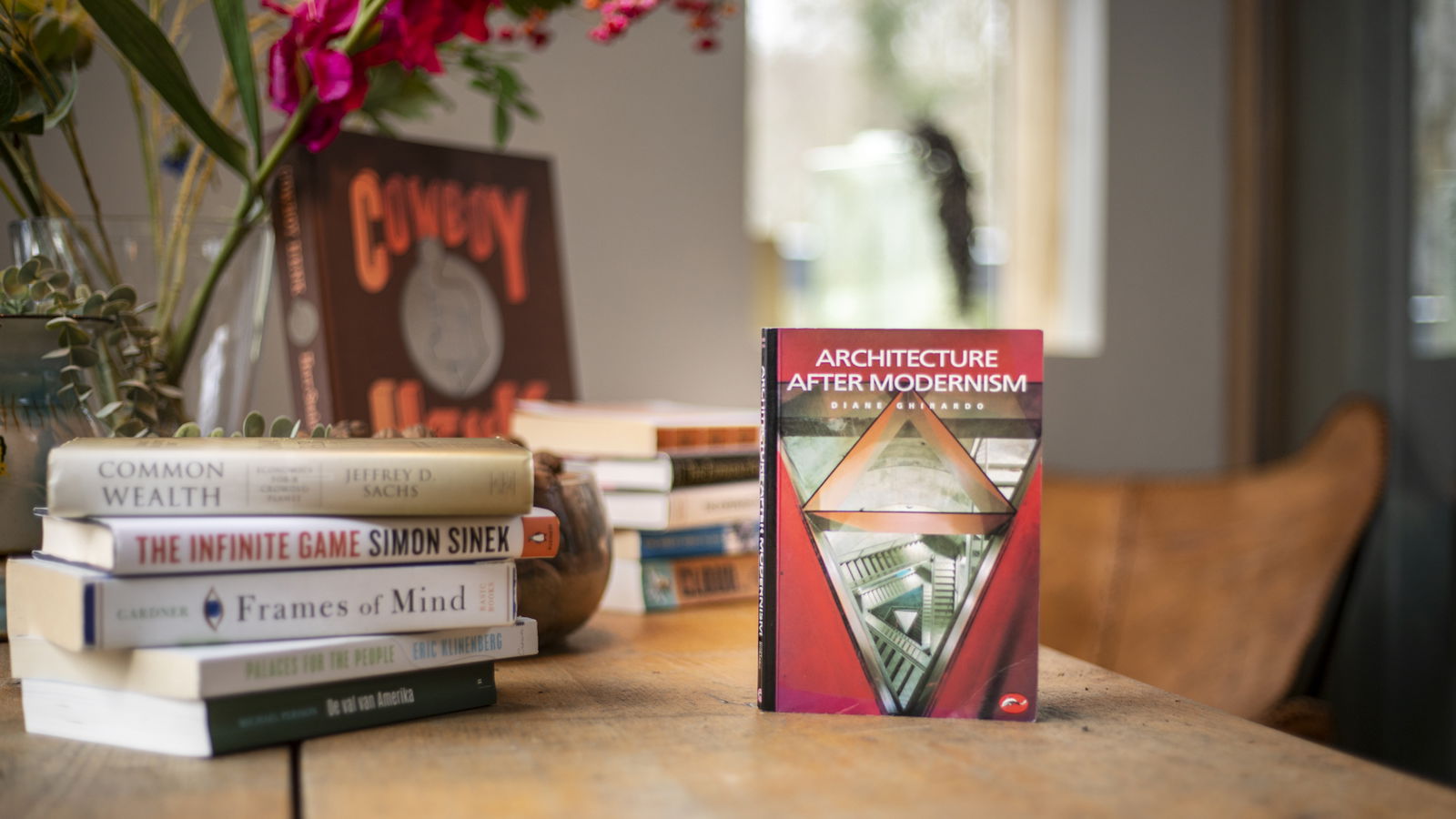
8. Frames Of Mind – The Theory Of Multiple Intelligences
Are you a musical genius? A physicist? Do you enjoy painting or perhaps studying languages? All these talents and preferences hint towards the idea that every person is intelligent, and every human being is intelligent in a different way. The US American psychologist Howard Gardner has become known for his theory of multiple intelligences. This differs greatly from traditional views of intelligence and standardized intelligence tests. Gardner’s approach is one of the principles we hold true at includi. Designing spaces where a great number of different people feel welcome means considering their diverse intelligences. And if we had to pinpoint one thing that we learned: At the end of the day, architects are humans, too!
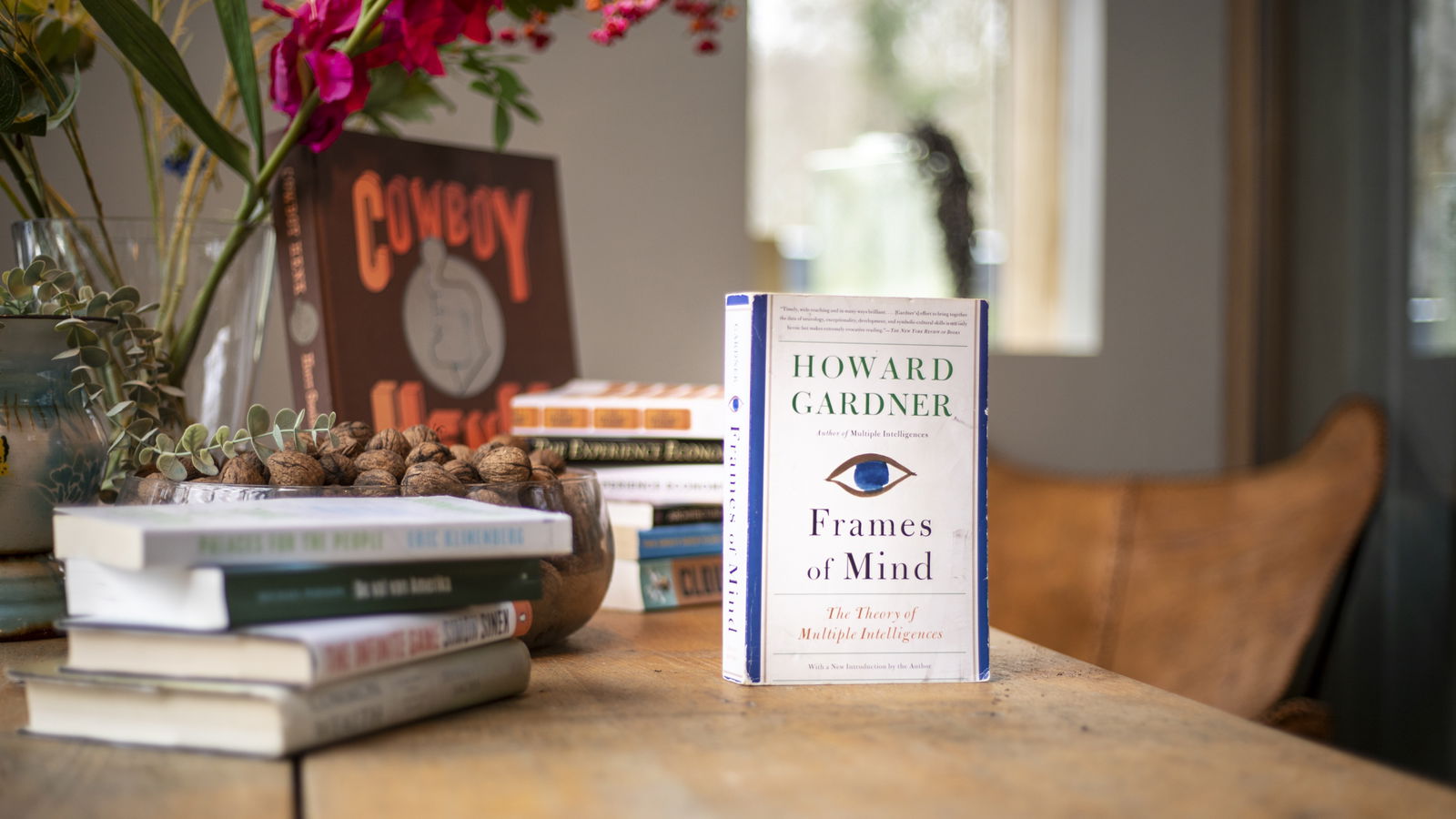
9. Common Wealth
This book on sustainability and endurability by US American economist Jeffrey D. Sachs might come a little unexpected for an architecture and design firm like us. And yet, we pursue the goal of giving communities places where they can get together to discuss what is new and important – opportunities of reflecting and thinking cooperatively about what it is that the community lacks and needs. In the long-term – and this is what Mr. Sachs points to in “Common Wealth”, this constitutes the counterweight of disregarding others and the ever-increasing barriers to solving the problems which we collectively face. It is a book of hope which appeals equally to head and heart to put greed aside and our values and visions into action. A better future is attainable. A book that no globally thinking person should ignore – that is why it is on this list.
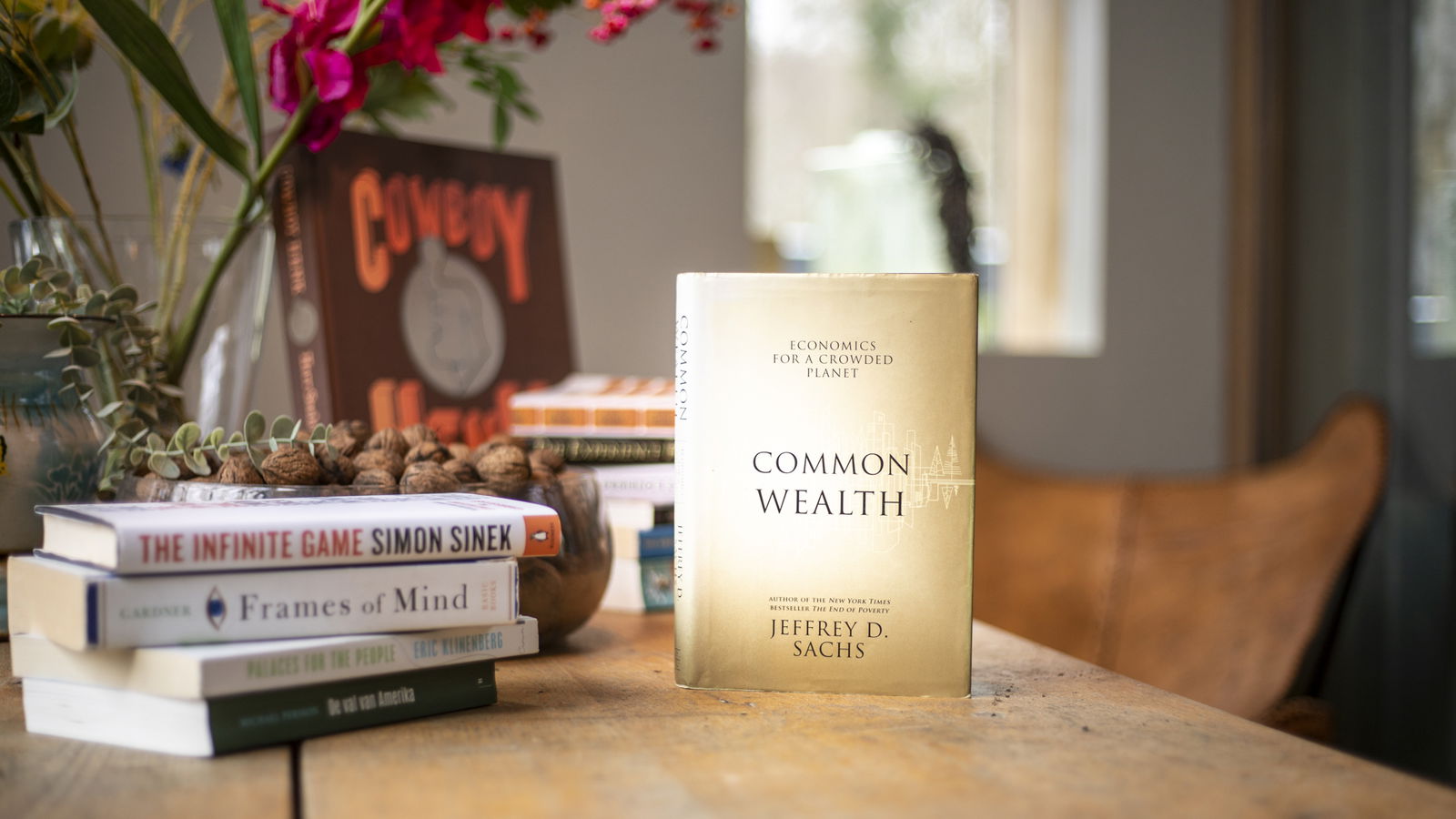
10. Cowboy Henk
Cowboy Henk is a popular Belgian comic that catches us with its humor. Don’t you think that humor connects people? When was the last time you held your sides laughing with another person? With a stranger? These moments of vulnerability, informality, and sometimes “imperfection” are what we relate to and connect with, both with regards to people but also when it comes to physical places. In its absurdity, the comic flows through continuous changes of perspective.
With the means of this constant play of back-and-forth and further, Herr Seele and Kamagurka prescribe their readers a mental visit to the Grand Canyon and make us realize how relative things are. In this sense, let’s remind ourselves not to take everything so seriously – especially not ourselves! If this is still not enough reading material, you want to check out our home-grown publication “3RD4ALL: How to Create a Relevant Public Space” and learn more about Third Places in the context of current social developments.
Find more information here. There you have it, the top ten books that guide and inspire includi, enabling us to transform ordinary spaces into Third Places. Urban design, economy, and sociology reads might not be page-turners for everyone, but they surely are place-turners for us. Happy World Book Day!
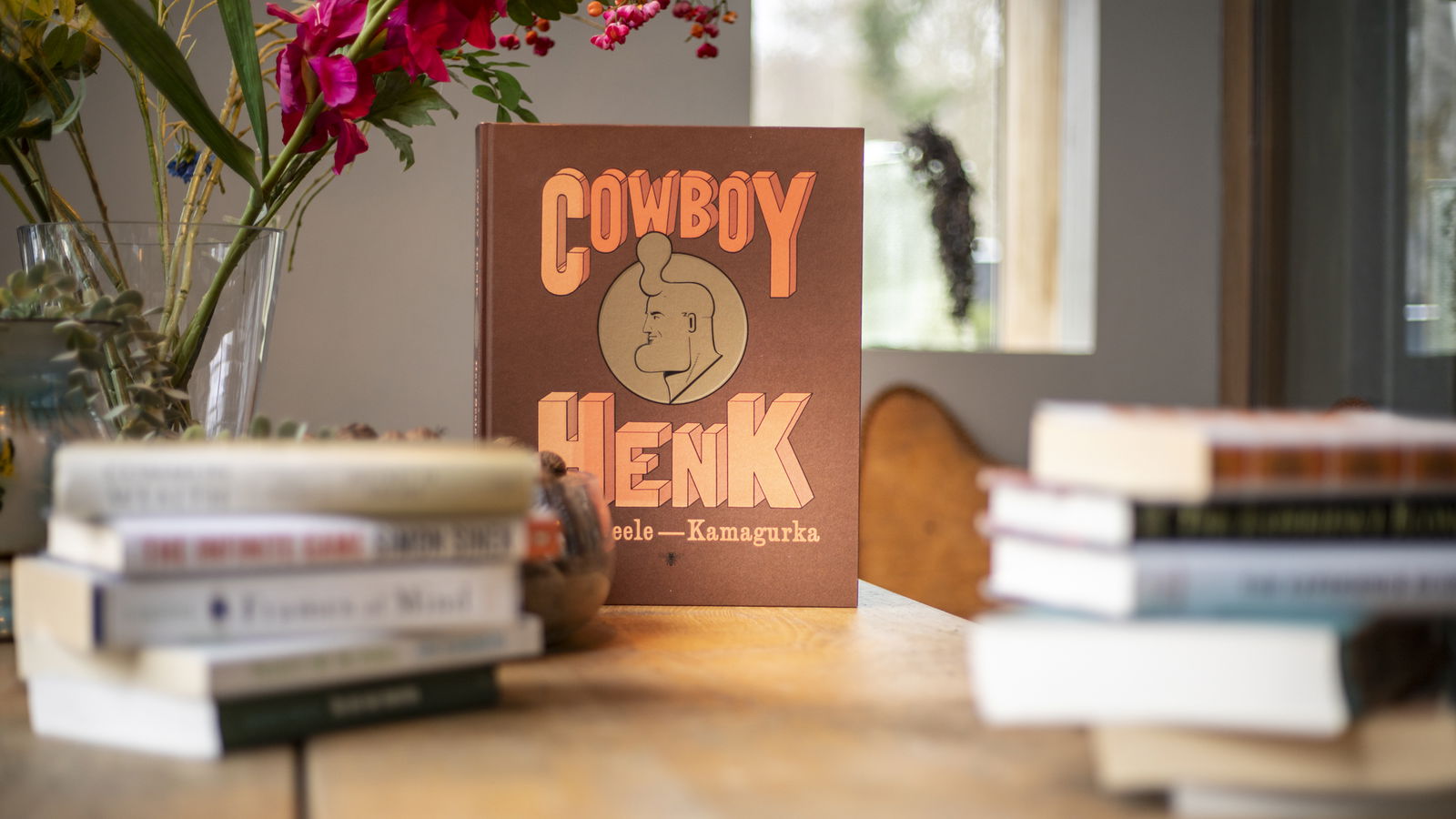
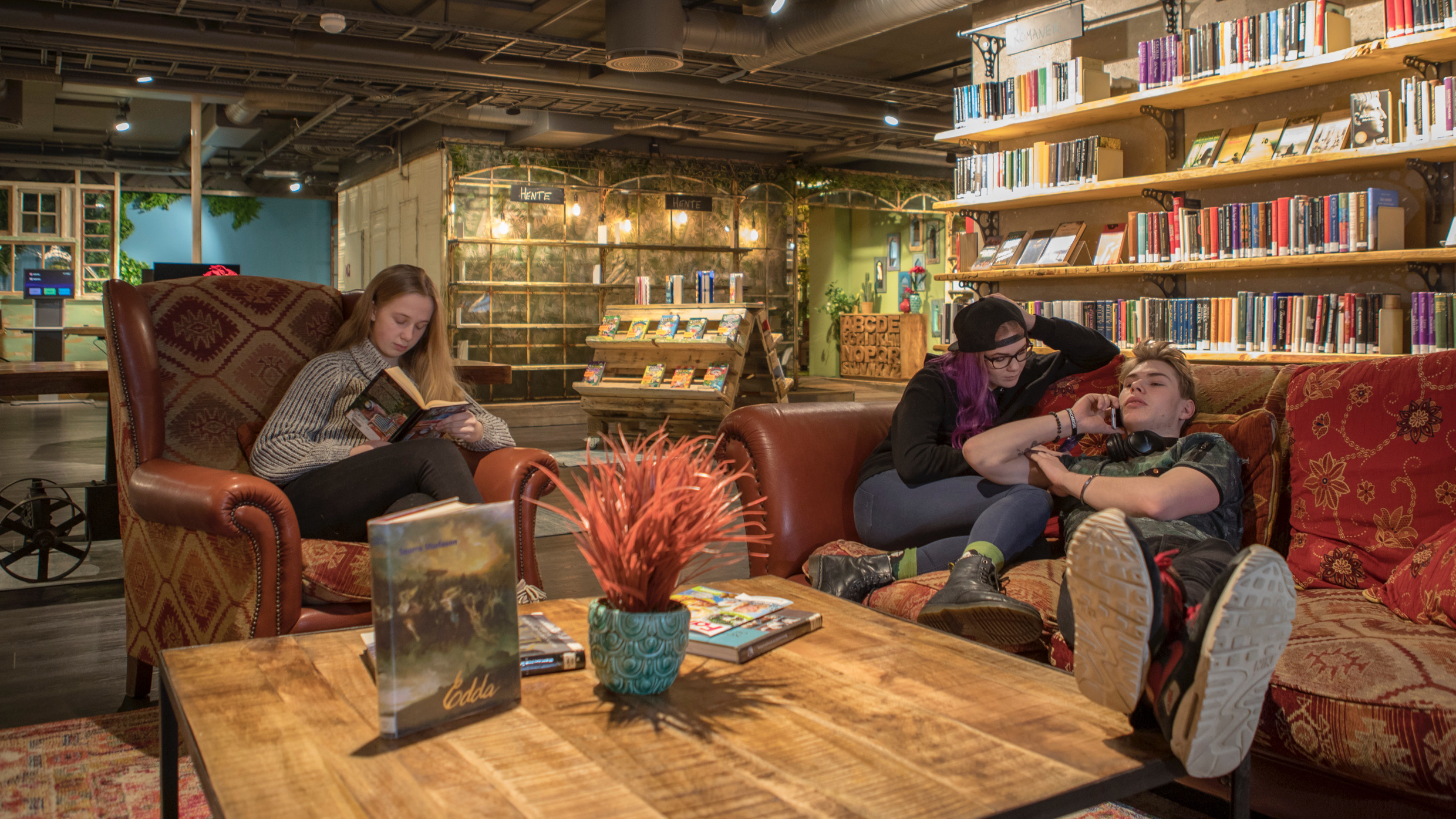
3RD4ALL: Q&A with Aat Vos


